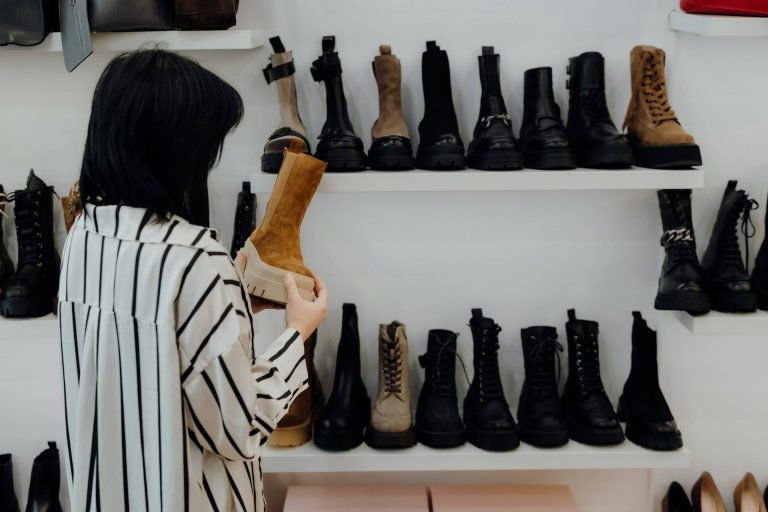
There is a small nuance in language that I often find myself chiming in on when I see a need to do so.
At first, the adjustment seems and sounds small. But in reality, there is a life-giving truth contained in it. And equally so, a great danger in missing it.
I first noticed this years ago, during a conversation about minimalism.
I was speaking with a woman who had just started simplifying her home, and she said, “It’s just really difficult for me because I’m a woman. And women like nice things.”
I don’t think she meant to say it in a negative way. In fact, I’m sure she didn’t. It was just something she believed to be true.
But immediately, my mind went to the dozens of women I know—both online and offline—who have exemplified for me what it looks like to live a simple life. Many women I know who aren’t captivated by “nice things,” and who have both chosen a different path and speak boldly about the freedom they’ve found because of it.
So I offered back a different perspective: “Well, not all women like nice things. Just some do.”
It’s a small change—just one word added to the sentence. But this is an important point. Because if all women love nice things, then yes, simplicity becomes impossible. But if it’s only some… suddenly there’s room to choose something different.
Over the years, I’ve heard the same kind of reasoning show up in different forms:
- “Women love fashion.”
- “Guys are into cars.”
- “People who grew up poor aren’t able to get rid of stuff.”
- “Teachers always hold onto every resource.”
- “Readers never part with their books.”
- “Artists need clutter to be creative.”
In each case, a personal experience is projected outward—assumed to be universal and by extension, unchangeable.
But here’s the thing: they’re not universal truths.
- Some women love fashion. But not all women.
- Some men buy expensive toys. But not all men.
- Some people who grew up poor have a hard time getting rid of stuff. But not all.
- Some teachers keep every resource.
- Some people struggle to declutter because of their past.
- Some readers can’t get rid of books.
Each of these statements is more accurate than the universal assumption we make based on our own experience.
And the more we realize that, the more we can grow and expand our potential to change. Because if we are tied to our behavior because of something we cannot change, we are a prisoner to it. But once we see not everyone’s tendency is the same as ours, we are free to choose a different path.
This is good news that we all need to hear.
To illustrate this point, after a speaking event one evening, a woman shared her story with me. She and her sister grew up in a home of extreme hoarding. “Because of that experience,” she told me, “I became a minimalist because I wanted nothing to do with the lifestyle. But my sister became a hoarder. Same childhood, same environment—but we chose opposite paths.”
I’ve never forgotten her words and the power of her example.
There may be inherited tendencies in our past because of our upbringing, but we are never a prisoner to them. Our behaviors aren’t always universal. And just because something feels familiar doesn’t mean it’s required. We always have the power to break patterns that no longer serve us.
The more tightly we hold onto sweeping assumptions—about ourselves or the world around us—the more we limit what’s possible.
We assume, “It’s not just me. Everyone is the same way. I can’t help it.”
But what if that’s not true? What if the story you’ve been telling yourself about who you are and what you need isn’t the only story that can be told?
You may have grown up in a home where the women loved fashion, but that doesn’t mean every woman loves fashion. And once you see that, you can begin to overcome that temptation.
You may have grown up in a family where the men loved cars, but that doesn’t mean every man loves cars. And once you see that, you can overcome that obsession.
If you are an artist who believes every artist requires lots of stuff to be creative, you’ll never open yourself up to the possibility that “the enemy of art is the absence of limitation” (as Orson Welles once said).
Freedom begins when we stop assigning our limitations to the world and start reclaiming the possibility of change. That is why it is so dangerous to assume our experience is universal.
I do not mean this to sound harsh or aggressive. Just the opposite, I hope it will open up potential and opportunity in your life to live differently.
Change is always possible. And if a change in your life would benefit you and your loved ones, I hope this truth will empower you to experience it today.